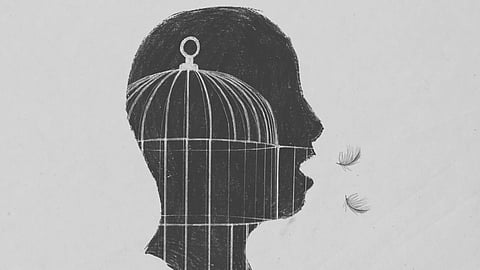

IS IT TIME FOR ACTIVIST ACADEMICS and other public spirited individuals, who are active on social media platforms, like X or Facebook, to follow the advice of James Stephen while drafting/posting anything on such platforms? James Stephen’s advice was, of course, not meant for them. It was meant for legislative drafters:
“I have had on many occasions, to draft Acts of Parliament, which, although they may be easy to understand, people continually try to misunderstand, and in which therefore it is not enough to attain to a degree of precision which a person reading in good faith can understand; but it is necessary to attain if possible to a degree of precision which a person reading in bad faith cannot misunderstand. It is all the better if he cannot pretend to misunderstand it.”
(emphasis supplied)
The legislative drafters who fail to reach that higher degree of precision do not face the threat of criminal prosecution at the behest of those who tend to or pretend to misunderstand the law but, these days, the people who post their comments on social media platforms do. In the recent past, some of their social media posts have led to their arrest and detention at the behest of those who have learnt to take offence even from the most unoffending words for political gains. Thus, those who air their views on social media platforms, perforce, need to take James Stephen’s advice more seriously than legislative drafters.
The real question is - Is it possible to reach to a degree of precision, while writing or posting anything, which would ensure that even “a person reading in bad faith cannot misunderstand”?
In the context of statutory interpretation, Lord Cave LC had once said: “no form of words has ever yet been framed… with regard to which some ingenious counsel could not suggest a difficulty”. When this is the case with legislations, which go through several rounds of scrutiny at the drafting and enactment stages, it is egregiously unreasonable to expect individual writers to attain to such a higher degree of precision to ensure that even the bad faith readers cannot misunderstand them. Should they stop airing their views, opinions or feelings? Well that is the safer option but it is certainly not in the interest of democracy.
The constitutional guarantee of freedom of speech and expression should at least accord protection to the well-meaning persons who think beyond their immediate interests and offer constructive criticism or alternative perspectives on issues of national importance or issues that concern the larger public.
It is trite that they do not have absolute freedom of speech but it is a travesty of constitutional guarantee to subject their freedom to whims and vicissitudes of the bad faith readers/listeners in society. What is particularly concerning in contemporary times is that the state institutions i.e., the police and the judiciary often act at the behest of those bad faith readers/listeners.
At times their understanding seems to be that the Constitution of India protects ‘right to be offended’ as a fundamental right and the freedom of speech and expression is subordinate to it. Some of the recent instances reveal that no action is taken or proposed to be taken against those who wantonly threaten to disturb public order or create violence unless someone’s freedom of speech or other forms of expression are curtailed. Per contra, the State institutions often yield to the demands of such busybodies and take preventive or punitive measures against those who are, in good faith, exercising their freedom. The irony is that those who directly threaten to disturb the public order are let off the hook and at their behest either preventive or punitive actions are taken against those who do not even have an intention to disturb public order on the ground that their speech or expression has ‘tendency’ to disturb public order.
It is evident from several reported instances of disinvitation of speakers, cancellation of seminars, conferences, discussion panels, comedy shows and movie screenings and, in some cases, even arrests and detentions. Such moves would have chilling effects on freedom of speech and expression. They make the constitutional protection uncertain. The result is ‘enforced silence’, which not only does great disservice to democracy but, in the long run, does not even serve the interest of those who enforce it.
Further, the Constitution of India obligates every citizen “to develop the scientific temper, humanism and the spirit of inquiry and reform”. The citizens, at least those who claim themselves to be conscientious, should stop taking offence at the drop of a hat and rush to lodge police complaints. If they find themselves in a position where they cannot agree with the points of view or opinions of others, they too have the freedom to counter them. They should use their wit and wisdom to effectively put forth their points of view instead of becoming accomplices in enforcing silences, which would harm democracy. It is pertinent to note that the ‘right to silence’ is part of freedom of speech but the ‘enforced silence’ is an antithesis to it.
Lastly, the judiciary, in particular the Supreme Court, is the final guarantor of citizens’ constitutional rights. It has the obligation to uphold the constitutional spirit and values. Its observations in the judgments and even off the cuff oral remarks made from the bench have nation-wide impacts. It is important that judges should weigh their words to ensure that even their oral utterances conform to, in Justice Krishna Iyer’s words, the “vision, mission and the passion of our Constitution”.